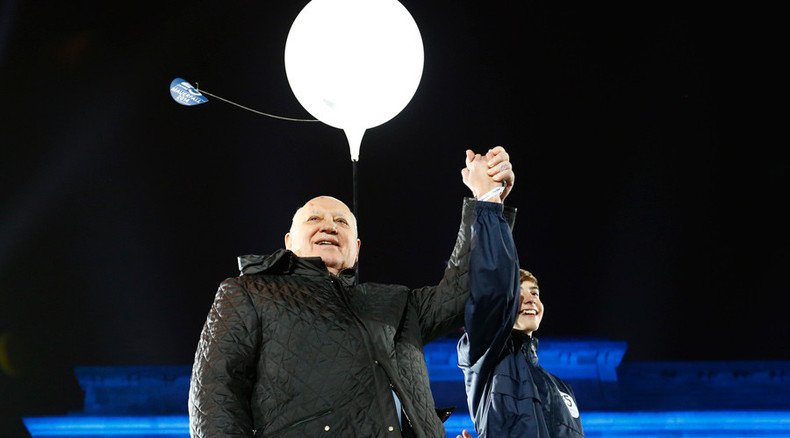Gorbachev calls for Russia-Germany alliance ‘for common European good’

Former Soviet president Mikhail Gorbachev has called for Russians and Germans to unite and called good relations between the two nations “priceless capital” in a newspaper interview.
“History teaches us that when Germans and Russians walk hand in hand both nations and all Europeans benefit. The more often Putin and Merkel talk to each other the better it is for everyone,” Gorbachev told Bild daily.
The former Soviet leader also added that in his opinion both Russians and Germans could be proud of the accomplishments they achieved after the end of the WWII.
“Cooperation gave a forward momentum to both of our nations. Our good relations are priceless capital that should not be wasted. Moreover, we should do everything to add to that capital, especially in these difficult times.”
READ MORE: Gorbachev accuses western leaders of disrespect toward victors over Nazism
Gorbachev’s interview with Bild is connected with the Day of German Unity – a major holiday celebrated on October 3 to commemorate the reunification of East and West Germany in 1990.
As the president of the Soviet Union, Mikhail Gorbachev played a major role in signing the treaty on the final settlement in Germany that paved the way to unification. He is still criticized at home for not pressing for enough compensation for Russia or for allowing it to happen at all.
In early 2015, Gorbachev lashed back at his critics who prepared a parliamentary resolution denouncing the German reunification as an act of aggression.
“You cannot evaluate the events that took place in a different epoch, in different times from today’s positions,” Gorbachev said. “The suggestion is simply rubbish. I will say this again – we cannot simplify the situation to the convenience of today’s needs and our appraisal of the past should not be based on today’s views.”
READ MORE: Gorbachev: It’s up to Europe to prevent new Cold War between US and Russia
In late 2014, Gorbachev urged all European leaders to help tone down the contradictions between Russia and the United States and thus help shape a new world order. “There are signs of Cold War” in the recent cooling down of relations between Moscow and Washington over Russia’s accession of the Crimea and the turmoil in Ukraine, Gorbachev said. "We can and we must stop this whole process, as we did in the 1980s. We opted for de-escalation, for the unification [of Germany]. And back then it was a lot tougher than now. So why can’t we do it again?” he said.












